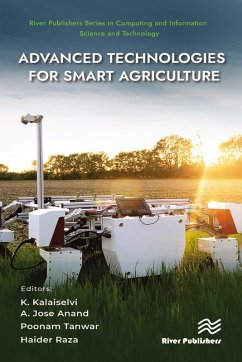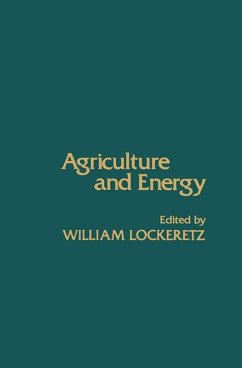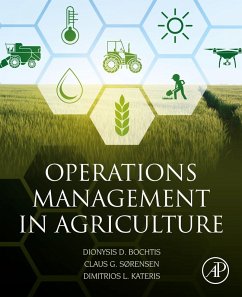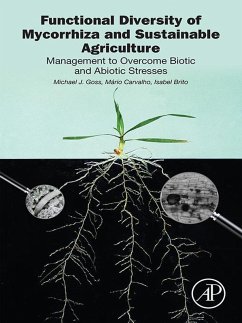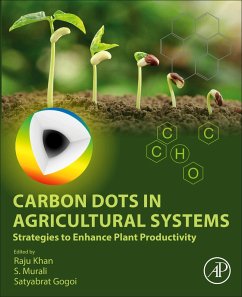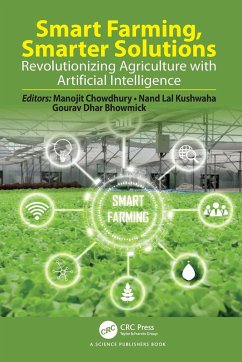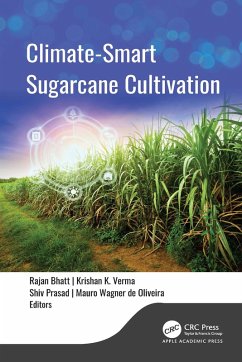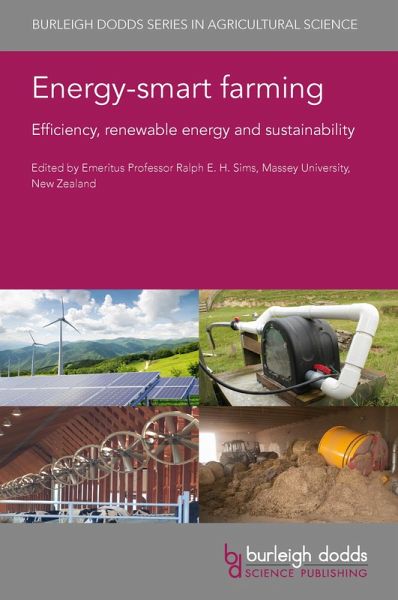
Energy-smart farming (eBook, ePUB)
Efficiency, renewable energy and sustainability
Redaktion: Sims, Emeritus Ralph E. H.
Versandkostenfrei!
Sofort per Download lieferbar
145,95 €
inkl. MwSt.
Weitere Ausgaben:

PAYBACK Punkte
73 °P sammeln!
It has been estimated that around 15% of global agricultural production costs on-farm are energy-related. With heightened concerns around the sustainability of crop and livestock production, the agricultural sector must develop and invest in alternative methods of farming that recoup the same results but have a reduced environmental impact.Energy-smart farming: Efficiency, renewable energy and sustainability reviews recent research undertaken on the ways of reducing the costs and environmental impact of on-farm energy use. The collection explores advances in improving energy efficiency on farm...
It has been estimated that around 15% of global agricultural production costs on-farm are energy-related. With heightened concerns around the sustainability of crop and livestock production, the agricultural sector must develop and invest in alternative methods of farming that recoup the same results but have a reduced environmental impact.
Energy-smart farming: Efficiency, renewable energy and sustainability reviews recent research undertaken on the ways of reducing the costs and environmental impact of on-farm energy use. The collection explores advances in improving energy efficiency on farms, renewable energy technologies such as agrivoltaics, biomass combustion, gasification and pyrolysis, as well as how more sustainable energy use can be delivered in practice in livestock production systems.
Edited by a leading expert in the field, Energy-smart farming: Efficiency, renewable energy and sustainability will be a standard reference for university and other researchers in renewable energy deployment and policies, environmental scientists, government and other agencies tackling the challenge of climate change, as well as farmers and representatives from food manufacturers and suppliers dedicated to reducing their carbon footprint.
Energy-smart farming: Efficiency, renewable energy and sustainability reviews recent research undertaken on the ways of reducing the costs and environmental impact of on-farm energy use. The collection explores advances in improving energy efficiency on farms, renewable energy technologies such as agrivoltaics, biomass combustion, gasification and pyrolysis, as well as how more sustainable energy use can be delivered in practice in livestock production systems.
Edited by a leading expert in the field, Energy-smart farming: Efficiency, renewable energy and sustainability will be a standard reference for university and other researchers in renewable energy deployment and policies, environmental scientists, government and other agencies tackling the challenge of climate change, as well as farmers and representatives from food manufacturers and suppliers dedicated to reducing their carbon footprint.
Dieser Download kann aus rechtlichen Gründen nur mit Rechnungsadresse in A, D ausgeliefert werden.





